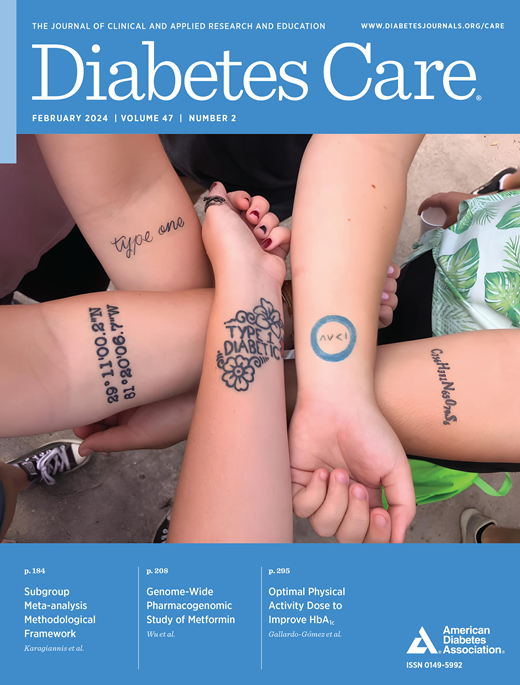Psychosocial Care for People With Diabetic Neuropathy: Time for Action
IF 14.8
1区 医学
Q1 ENDOCRINOLOGY & METABOLISM
引用次数: 0
Abstract
Psychological factors and psychosocial care for individuals with diabetic neuropathy (DN), a common and burdensome complication of diabetes, are important but overlooked areas. In this article we focus on common clinical manifestations of DN, unremitting neuropathic pain, postural instability, and foot complications, and their psychosocial impact, including depression, anxiety, poor sleep quality, and specific problems such as fear of falling and fear of amputation. We also summarize the evidence regarding the negative impact of psychological factors such as depression on DN, self-care tasks, and future health outcomes. The clinical problem of underdetection and undertreatment of psychological problems is described, together with the value of using brief assessments of these in clinical care. We conclude by discussing trial evidence regarding the effectiveness of current pharmacological and nonpharmacological approaches and also future directions for developing and testing new psychological treatments for DN and its clinical manifestations.糖尿病神经病变患者的社会心理护理:行动起来吧
糖尿病神经病变(DN)是糖尿病的一种常见并发症,给患者带来沉重负担,而心理因素和社会心理护理是重要但被忽视的领域。在本文中,我们将重点讨论糖尿病神经病变的常见临床表现、持续性神经病理性疼痛、姿势不稳和足部并发症,以及它们对社会心理的影响,包括抑郁、焦虑、睡眠质量差,以及害怕跌倒和害怕截肢等具体问题。我们还总结了有关抑郁等心理因素对 DN、自我护理任务和未来健康结果的负面影响的证据。我们还介绍了心理问题发现不足和治疗不力的临床问题,以及在临床护理中对这些问题进行简短评估的价值。最后,我们讨论了有关当前药物和非药物疗法有效性的试验证据,以及针对 DN 及其临床表现开发和测试新的心理疗法的未来方向。
本文章由计算机程序翻译,如有差异,请以英文原文为准。
求助全文
约1分钟内获得全文
求助全文
来源期刊

Diabetes Care
医学-内分泌学与代谢
CiteScore
27.80
自引率
4.90%
发文量
449
审稿时长
1 months
期刊介绍:
The journal's overarching mission can be captured by the simple word "Care," reflecting its commitment to enhancing patient well-being. Diabetes Care aims to support better patient care by addressing the comprehensive needs of healthcare professionals dedicated to managing diabetes.
Diabetes Care serves as a valuable resource for healthcare practitioners, aiming to advance knowledge, foster research, and improve diabetes management. The journal publishes original research across various categories, including Clinical Care, Education, Nutrition, Psychosocial Research, Epidemiology, Health Services Research, Emerging Treatments and Technologies, Pathophysiology, Complications, and Cardiovascular and Metabolic Risk. Additionally, Diabetes Care features ADA statements, consensus reports, review articles, letters to the editor, and health/medical news, appealing to a diverse audience of physicians, researchers, psychologists, educators, and other healthcare professionals.
 求助内容:
求助内容: 应助结果提醒方式:
应助结果提醒方式:


